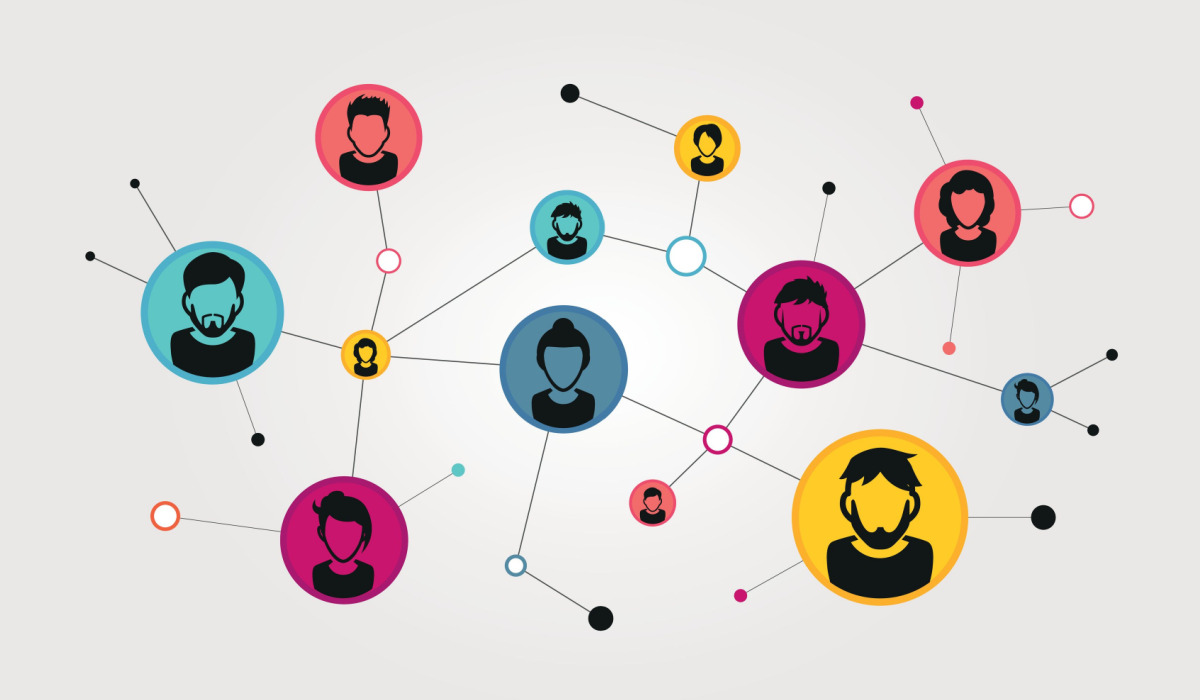As an entrepreneur, you always have a lot to do. So the last thing you need is negativity invading your personal outlook, or your company’s culture, and holding you back from getting important work done.
In fact, compared to how much our frustration is reduced by making progress at work, which has the most positive effect on how we feel at the end of the day, experiencing a setback can increase our frustration three times more. So one negative experience is equal to three of the most positive experiences we can have at work.
Negativity can come in lots of different forms. It could be a customer complaining about a bad experience that lingers with you for days afterwards. Or perhaps there’s a lot of criticism between your team members that’s hurting collaboration. Or, it could just be that you’re finding it hard to be optimistic with all the pressure that comes with running your own business.
Before we look at how to overcome these influences at work, let’s look at why negativity is so good at infiltrating our workdays.
Why We Focus so Much on Negativity
Have you ever noticed that negative memories or experiences stay with you longer than positive ones? Or that you can remember a lot more detail about negative experiences than you can about positive ones?
There’s a good reason for this, and it comes from evolution.
Scientists believe negative emotions and experiences were more important to our ancestors, so our brains evolved to pay more attention to them. Negative feelings are often clues that we’re unwell, or that one of our social bonds isn’t healthy (for instance, that icky feeling that hangs over you after a big argument). Being sick or falling out with our social group were the kinds of events that could have been deadly in the past. This is why they feel so important to us.
When something bad happens, we tend to think more about it. We use stronger words to describe the event or negative feeling, and we process information about it more thoroughly. This is what makes those negative events stick so strongly in our memories. The memories are created more strongly than positive ones in the first place.
Some people do have a more positive outlook, but almost everyone remembers negative things more strongly and in more detail. — Clifford Nass, professor of communication at Stanford University, and author of The Man Who Lied to His Laptop.
Thinking back, again, to when our ancestors had to worry about being eaten by tigers, we can see how this tendency to focus on the negatives has stuck with us. Those who were more attuned to bad things were more likely to survive threats—they paid more attention to a rustle in the grass, and they remembered more vividly the last time they’d escaped a predator. Thus, they were more likely to be around to pass on their genes, and we all ended up (on average) more likely to focus on negatives.
According to Roy F. Baumeister, professor of social psychology at Florida State University, “Survival requires urgent attention to possible bad outcomes but less urgent with regard to good ones.”
Negative Emotions are Necessary for our Well-Being
Although it might seem like the best outcome would be to only experience positive emotions, research shows negative emotions have their place, too.
Negative emotions help us reflect on our situation. They’re useful in understanding what’s happened and reflecting on how we’ll act in the future.
Psychologist Jonathan M. Adler from the Franklin W. Olin College of Engineering says, “one of the primary reasons we have emotions in the first place is to help us evaluate our experience.”
One study of people taking psychotherapy sessions found that those who experienced a mix of good and bad feelings before each session saw improvements in their well-being over the next one to two weeks of having those feelings. And it didn’t matter if those mixed feelings were uncomfortable—they still preceded improvements to well-being.
Besides the benefits of experiencing negative emotions, there are also downsides to suppressing those feelings. Trying to ignore your negative emotions can actually backfire, and make you feel worse.
A 2010 study found that pushing back negative emotions could lead to “emotional overheating.” The researchers suggested it’s more healthy to simply recognize your negative feelings than trying to suppress them.
This has been shown in other research, too. A 2009 study of participants undergoing treatment for alcohol abuse or addiction used a questionnaire on drinking-related urges and cravings. The questionnaire also asked about attempts to suppress alcohol-related thoughts. The researchers found participants who fought alcohol-related thoughts had more of those thoughts in total. Another study of a similar group found those who suppressed their thoughts had a stronger stress response when they were exposed to alcohol-related cues, like a wine glass or bottle opener.
And in 2011, a study in Sydney found suppressing unwanted thoughts before bed made them more likely to show up in the participant’s dreams—a phenomenon called “dream rebound.”
We might think we can keep those negative feelings at bay, but suppressing them doesn’t seem to work. One way or another, those emotions have to be expressed.
As psychologist Shannon Sauer-Zavala says, “It is impossible to avoid negative emotions altogether because to live is to experience setbacks and conflicts.”
Ways to Overcome Negativity

Despite the necessity of negative emotions, we don’t have to let them overwhelm us. It can be easy to focus too much on negative experiences or thoughts, and to let them entirely outweigh our positive feelings. The key here is to not try to block out negativity entirely, but to appreciate negative thoughts for what they are without becoming fixated.
To find a comfortable balance, here’s what experts suggest to keep those negative feelings in-check:
Accept Negative Feelings
Studies of suppressing negative feelings generally agree this is a bad idea. They also tend to suggest that accepting our negative emotions is the best approach to dealing with them.
Mindfulness training has been proven to help participants overcome anxiety disorders by teaching them to accept their feelings. You could try meditation, or simple mindful breathing exercises. Mindfulness has also been shown to help people deal with trauma more easily and help addicts crave drugs less often.
The idea is to acknowledge your feelings without trying to change them or act on them. Simply understand how you’re feeling, rather than trying to suppress those emotions.
Improve How Criticism is Shared in Your Company
You may have heard of this idea with a slightly different name, but the strategy is the same: When giving someone feedback, start with something positive, then provide criticism, followed by another positive to end on. Thus, you’re sandwiching the criticism between positive feedback.
The problem is, this approach doesn’t actually work. Because we pay more attention to negatives, and they stick in our minds better, sandwiching criticism between good feedback isn’t enough to take away the sting of hearing that you need to improve.
Clifford Nass suggests starting with constructive criticism, and following it up with lots of positives. This works because, as Baumeister says, “Many good events can overcome the psychological effects of a bad one.”
When you’re offering criticism on someone’s work, try to also make it very clear that it’s the work that’s being criticized, not the person. Pixar’s Braintrust team, who oversee the development of new films, had an issue with their feedback process early on. It was difficult for filmmakers to hear critiques of their work, even if that feedback was warranted, and would improve the film.
To overcome this, the Braintrust team focused on ensuring everyone knew the film itself was under the microscope, not its makers. This made it easier for the filmmakers to take on feedback and improve the film, without negativity bogging them down.
Use up Your Mental Resources Another Way
If you’re someone who dwells on negative experiences often, you’ll know that this is an intensive process. It takes your focus away from more important activities like work, sleep, or enjoying time with friends and family, because dwelling on negative emotions uses a lot of mental resources.
To avoid dwelling on negatives too much, try using up your mental resources in other ways. If your brain is being used put to work, it won’t have the idle energy to dwell on past negative experiences.
Try something fun that takes mental focus, like playing an instrument or a sport you enjoy, or doing a puzzle. These activities stop your mind from wandering, so it can’t dwell on other things, but they don’t require an extension of cognitive effort beyond paying attention to what you’re doing. They’re a great way to give your brain a break, and help you refocus when you go back to work.
But remember, suppressing negative thoughts isn’t healthy. This approach is specifically for taking your mind off of negative thoughts that you’ve already processed, but are lodged in your conscious.
One Last Point
If you’re prone to venting about negative experiences, it’s time to rethink that approach. While it seems to feel good to express how you feel, venting not only doesn’t make the venter feel better—it also makes the listener feel worse.
Plus, the more often you do it, the more you’ll keep experiencing those same negative thoughts and emotions in the future. Neurons that fire together, wire together. In other words, the more often you think in the same way, the easier it becomes to keep thinking that way in the future.
Encouraging yourself to dwell on negative thoughts by discussing them at length with others can encourage a negative feeling throughout your team, and could get you stuck in the cycle of dealing with your feelings this way in the future.



















